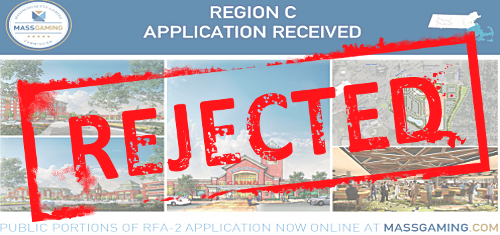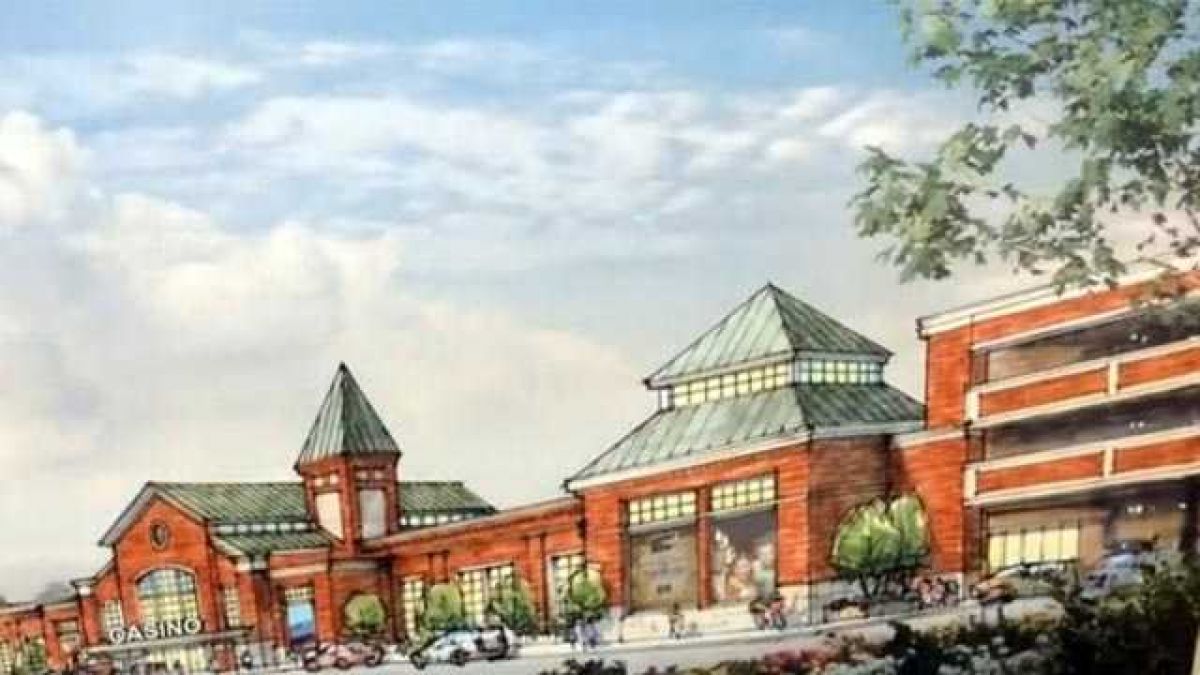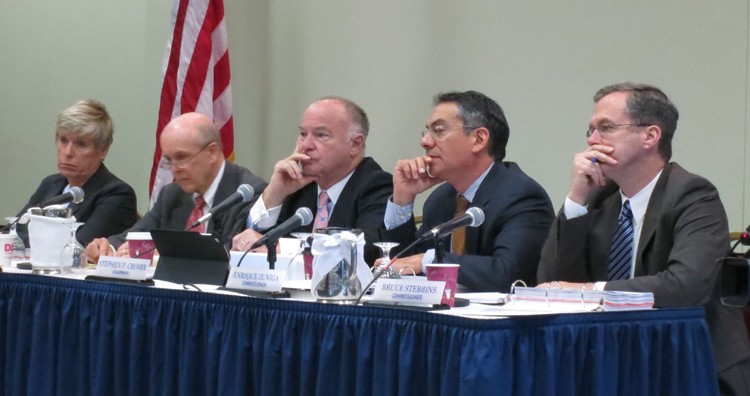Brockton Casino News

Mass Gaming & Entertainment (MG&E), the Rush Street Gaming-backed outfit pushing for a controversial casino project in Brockton, Massachusetts, was the second-biggest corporate spender on lobbying. State denies license for Brockton casino- BOSTON — Two major resort casinos won’t duke it out in Massachusetts’ southeastern corner after all.Mass Gaming & Entertainment lost its bid to. The developer proposing to build a casino at the Brockton Fairgrounds said Monday it will continue to pursue a license in the face of a federal decision that has cleared the way for the Mashpee. The regulator was also concerned that the $1 billion First Light Resort and Casino — proposed by the Mashpee Wampanoag tribe for Taunton, less than 20 miles from the Brockton site — would eat into. There won’t be a casino in Brockton any time soon. The Massachusetts Gaming Commission decided Thursday in a 4-1 vote not to license a proposed $677 million resort casino in the City of Champions.
© Pat Greenhouse Neil Bluhm aims to build a casino in Brockton.You could call Neil Bluhm a betting man.
A real estate magnate from Chicago, Bluhm and his local venture, Mass Gaming & Entertainment, ended up as the second-largest corporate spender on lobbying efforts in the state last year, according to new figures from the secretary of state’s office.
Mass Gaming spent $662,000 on lobbying fees last year. That put it right behind the returning champ, Partners HealthCare, which spent $704,000. (This ranking doesn’t include trade groups.)
The hospital network happens to be the state’s largest private-sector employer, a colossus in a heavily regulated industry.

Brockton Casino News Today
Mass Gaming, in contrast, has no employees or operations. Instead, it is still just a development venture, with one main goal now: building a $700 million casino in Brockton.
Mass Gaming was also second behind Partners in 2018. But that year it spent “only” $430,000 on lobbying. The venture’s spending rose by more than 50 percent in 2019, spread among three lobbying firms: Smith, Costello & Crawford, Rasky Partners, and Keswick Consulting. It was by far the busiest time for lobbying here for Mass Gaming, a partnership between Bluhm’s Rush Street gaming business and Raynham Park owner George Carney.
Mass Gaming spokesman Joe Baerlein said it is natural his client’s spending would be high: Pursuing a gaming license in Massachusetts requires a fair amount of lobbying, in part because two other full-scale casinos are already up and running and state gaming commissioners have hardly been enthusiastic about awarding a third license.
Last year, Bluhm and his team saw an opening, a chance to persuade the Massachusetts Gaming Commission to reconsider its earlier rejection of the Brockton plan.
Four years ago, the commission had denied their request for the casino license designated for Southeastern Massachusetts. It remains the last such license left for the commission to dole out. MGM and Wynn hold similar licenses for their Springfield and Everett casinos, and Penn National operates Plainridge Park in Plainville with the state’s only slots-parlor license.
Mass Gaming didn’t have more luck the second time around, at least not at first: In September, the gaming commission decided not to revisit its earlier decision.
Brockton Casino News 2020
But it got the commissioners thinking: Maybe the southeastern region should get a casino, after all. The commission is currently seeking comments from the public about whether it should reopen the region, dubbed Region C in the state’s casino law, to a casino competition. Comments are due March 16. The commission is also weighing whether to hire an outside firm to conduct a market analysis of the region, to make sure there are enough gambling dollars to go around.
If Region C gets reopened, Mass Gaming representatives believe they would have a good shot.
After all, only one other developer has made public its interest in the region, and that proposal needs the Legislature’s help. Developer Tom O’Connell has proposed building a horse track and casino in Wareham. But he only wants a license to run a slots parlor, which requires a much smaller upfront investment than a full-scale casino with table games. He needs the casino law to be changed for that to happen; only one is authorized under state law, and Plainridge already has it.
O’Connell’s project would cost about $300 million. Mass Gaming, meanwhile, said it would invest at least $700 million in a Brockton complex, which would be built at the Brockton Fairgrounds property owned by Carney.
Then there’s the Mashpee Wampanoag tribe, which still hasn’t given up on its hopes for a Taunton casino. The tribe’s project would be built under its sovereign rights, and not through a state license. The prospect of a competing casino a short drive down Route 24 from Brockton was a big reason the commission rejected Mass Gaming in the first go-around, in 2016.
Maybe not anymore. A federal appeals court panel dealt the tribe a major losing hand Thursday, by upholding a lower-court decision that essentially blocked the tribe from putting the Taunton land in trust for a casino. The potential rival isn’t out of the game — another appeal is pending in D.C. — but the odds for the Mashpee just became much longer.
Meanwhile, Brockton waits for the potential boon from a casino: the hotel and event space, the restaurants, the estimated 1,800 jobs.
For this struggling city of nearly 100,000 people, it often feels like economic development goes the other way, such as when Stop & Shop decided to close its supermarket on the city’s west side this month. The new mayor, Robert Sullivan, had to hold his inaugural ball in Randolph, at Lombardo’s in January; organizers said the Shaw’s Center in Brockton was not in good enough shape and there was no other adequate facility in the city. Brockton is only about 20 miles from Boston and all its buzz, but sometimes feels half a world away.
You don’t become a real estate billionaire like Bluhm without making some bets along the way. The appeals court ruling on the Mashpee issue may have just sidelined his biggest rival here, increasing the chances that his big bet on Massachusetts might finally pay off.
© Pat Greenhouse Neil Bluhm aims to build a casino in Brockton.You could call Neil Bluhm a betting man.
A real estate magnate from Chicago, Bluhm and his local venture, Mass Gaming & Entertainment, ended up as the second-largest corporate spender on lobbying efforts in the state last year, according to new figures from the secretary of state’s office.
Mass Gaming spent $662,000 on lobbying fees last year. That put it right behind the returning champ, Partners HealthCare, which spent $704,000. (This ranking doesn’t include trade groups.)
The hospital network happens to be the state’s largest private-sector employer, a colossus in a heavily regulated industry.
Mass Gaming, in contrast, has no employees or operations. Instead, it is still just a development venture, with one main goal now: building a $700 million casino in Brockton.
Mass Gaming was also second behind Partners in 2018. But that year it spent “only” $430,000 on lobbying. The venture’s spending rose by more than 50 percent in 2019, spread among three lobbying firms: Smith, Costello & Crawford, Rasky Partners, and Keswick Consulting. It was by far the busiest time for lobbying here for Mass Gaming, a partnership between Bluhm’s Rush Street gaming business and Raynham Park owner George Carney.

Mass Gaming spokesman Joe Baerlein said it is natural his client’s spending would be high: Pursuing a gaming license in Massachusetts requires a fair amount of lobbying, in part because two other full-scale casinos are already up and running and state gaming commissioners have hardly been enthusiastic about awarding a third license.
Last year, Bluhm and his team saw an opening, a chance to persuade the Massachusetts Gaming Commission to reconsider its earlier rejection of the Brockton plan.
Four years ago, the commission had denied their request for the casino license designated for Southeastern Massachusetts. It remains the last such license left for the commission to dole out. MGM and Wynn hold similar licenses for their Springfield and Everett casinos, and Penn National operates Plainridge Park in Plainville with the state’s only slots-parlor license.
Mass Gaming didn’t have more luck the second time around, at least not at first: In September, the gaming commission decided not to revisit its earlier decision.
But it got the commissioners thinking: Maybe the southeastern region should get a casino, after all. The commission is currently seeking comments from the public about whether it should reopen the region, dubbed Region C in the state’s casino law, to a casino competition. Comments are due March 16. The commission is also weighing whether to hire an outside firm to conduct a market analysis of the region, to make sure there are enough gambling dollars to go around.
If Region C gets reopened, Mass Gaming representatives believe they would have a good shot.
After all, only one other developer has made public its interest in the region, and that proposal needs the Legislature’s help. Developer Tom O’Connell has proposed building a horse track and casino in Wareham. But he only wants a license to run a slots parlor, which requires a much smaller upfront investment than a full-scale casino with table games. He needs the casino law to be changed for that to happen; only one is authorized under state law, and Plainridge already has it.

O’Connell’s project would cost about $300 million. Mass Gaming, meanwhile, said it would invest at least $700 million in a Brockton complex, which would be built at the Brockton Fairgrounds property owned by Carney.
Then there’s the Mashpee Wampanoag tribe, which still hasn’t given up on its hopes for a Taunton casino. The tribe’s project would be built under its sovereign rights, and not through a state license. The prospect of a competing casino a short drive down Route 24 from Brockton was a big reason the commission rejected Mass Gaming in the first go-around, in 2016.
Maybe not anymore. A federal appeals court panel dealt the tribe a major losing hand Thursday, by upholding a lower-court decision that essentially blocked the tribe from putting the Taunton land in trust for a casino. The potential rival isn’t out of the game — another appeal is pending in D.C. — but the odds for the Mashpee just became much longer.
Meanwhile, Brockton waits for the potential boon from a casino: the hotel and event space, the restaurants, the estimated 1,800 jobs.
For this struggling city of nearly 100,000 people, it often feels like economic development goes the other way, such as when Stop & Shop decided to close its supermarket on the city’s west side this month. The new mayor, Robert Sullivan, had to hold his inaugural ball in Randolph, at Lombardo’s in January; organizers said the Shaw’s Center in Brockton was not in good enough shape and there was no other adequate facility in the city. Brockton is only about 20 miles from Boston and all its buzz, but sometimes feels half a world away.
You don’t become a real estate billionaire like Bluhm without making some bets along the way. The appeals court ruling on the Mashpee issue may have just sidelined his biggest rival here, increasing the chances that his big bet on Massachusetts might finally pay off.